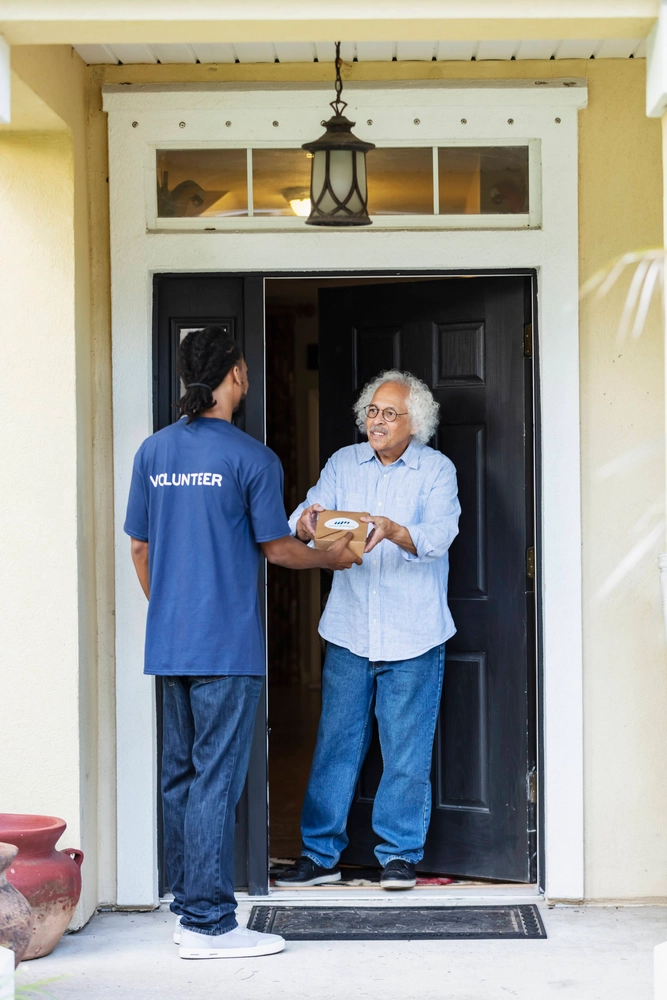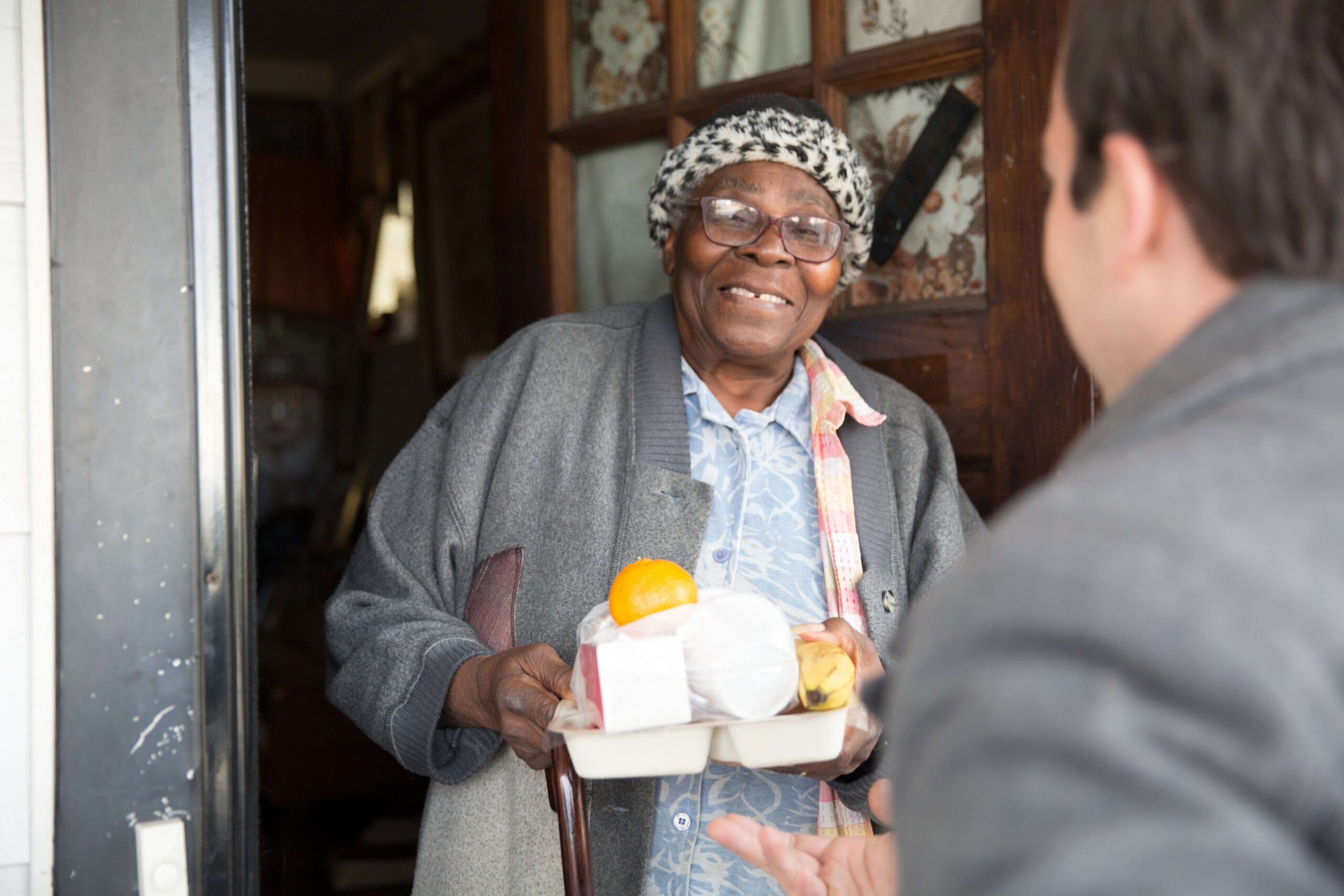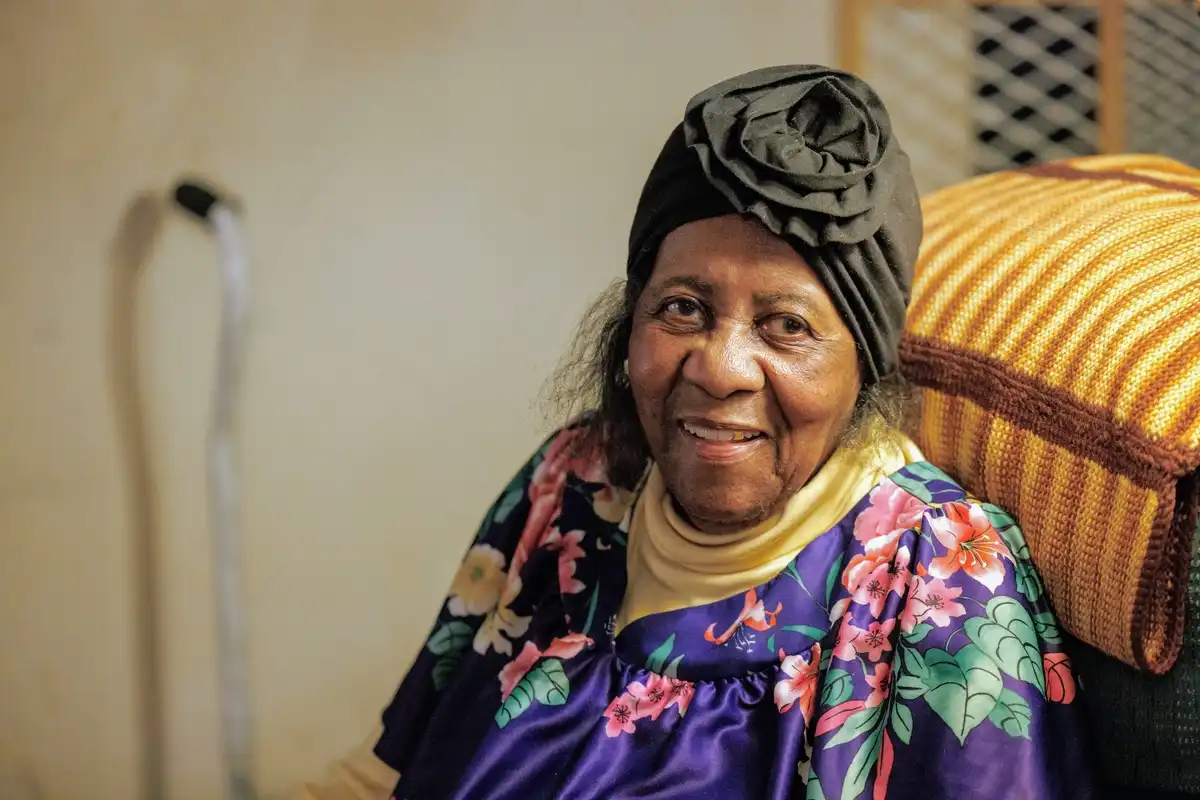Links & Downloads
Nearly 13 million1 older Americans face hunger or the threat of it and 1 in 42 lives alone. Additionally, almost 95% of older adults have at least one chronic condition, with almost 80% having two or more.3
Seniors experiencing food insecurity report being in poor physical or mental health for an additional three days per month compared to their food-secure peers. Lack of access to regular, nutritious meals contributes to higher rates of depression, gum disease, asthma, diabetes, congestive heart failure and heart attacks.4 Lack of social connection, too, brings its own set of dangers associated with increased risks of heart disease,5 stroke6 and even death.7 8 Combined, these health risks result in significant care costs for seniors themselves, as well as for Medicare, taxpayers and the health care9 industry as a whole.10 The growing population of Americans aged 60 or older, rising health care costs and ongoing inflation11 make it more important than ever to address the escalating crisis around food access and loneliness.

If we didn’t have Meals on Wheels … we’d be spending everything we have on food … [it would be] not a question of having a couple extra dollars in the bank … but having no extra dollars in the bank.Meals on Wheels client
For more than 50 years, Meals on Wheels has supported our nation’s seniors through a network of local community-based programs. These providers serve as a lifeline to those struggling with food insecurity, nutrition challenges, mobility, loneliness and countless other difficulties of aging. Each day, we hear anecdotes of how Meals on Wheels has touched people’s lives. And for every positive story, there’s an opportunity to apply real numbers to the impact Meals on Wheels has on those who benefit from services. Yet funding for Meals on Wheels services has not kept pace with the growing need. We looked at 38 research publications conducted between 1996 and 2023, and from them, we can draw strong associations between receiving Meals on Wheels and experiencing positive health and well-being outcomes that affect health. These findings suggest that if our nation continues to underfund Meals on Wheels, health care costs will increase.
Key Findings

The review of 38 selected studies found a link between receiving Meals on Wheels and experiencing the following primary health and well-being outcomes:
- Reduced use of costly health care services
- Reduced nursing home use and increased ability to age in place
- Reduced health care costs attributed to reduced hospital and nursing home spending
- Increased food security
- Improved diet quality
- Reduced or slowed decline in nutritional risk
- Reduced social isolation and loneliness
- Reduced falls and increased home safety
I love this program. It makes me feel alive, like someone cares. And I know I’m not the only lonely senior.Meals on Wheels client
The review also found evidence from a smaller number of studies that participants enjoyed greater physical health, improved mental health and well-being, and greater financial security. Some studies also identified positive benefits for staff and volunteers.

This comprehensive review of 38 studies establishes Meals on Wheels as an evidence-based, cost-effective solution that reduces the use of health care services, prevents nursing home admissions and generates substantial health care cost savings to individuals and U.S. taxpayers. By delivering nutritious meals, fostering social connections and providing safety checks, Meals on Wheels helps older adults maintain their health and independence.
Looking Ahead
Study recommendations outlined in the report provide guidance for program planning, encourage the expansion and enhancement of services, and offer inspiration for future studies. Several studies noted the need for government investment in Meals on Wheels, including sustained Older American Act (OAA) funding, expanded OAA funding to cover more older adults who need Meals on Wheels and those on waitlists, and federal and state investment in Meals on Wheels generally.
A lot of them will tell me, ‘I just could not live alone if you weren’t bringing my meals to me.'Meals on Wheels volunteer
Additionally, several of the reviewed studies highlighted the cost savings of strengthening partnerships with health care organizations, emphasizing their potential to enhance clients’ well-being. By fostering these health care partnerships, Meals on Wheels can further extend its impact and contribute to better outcomes for older adults while reducing the burden on the health care system.
Meals on Wheels America is committed to updating and expanding on these findings, and conducting further research to explore the life-changing impact our organization’s services have on the lives of the older adults we serve.
Download Full Report
In reproducing any excerpts of this report, please provide a credit that recognizes Meals on Wheels America, such as: Meals on Wheels America. (2023). The Case for Meals on Wheels: An Evidence-Based Solution to Senior Hunger and Isolation. https://www.mealsonwheelsamerica.org/research/the-case-for-meals-on-wheels/
External Publications
Health and Well-Being Outcomes of Meals on Wheels: A Systematic Review for a Complex Intervention, Wright, B., Owens, V., & Wilson, S., Innovation in Aging, 2024.
Citations
- Meals on Wheels America calculations of data from the Current Population Survey Food Security Supplement.
- 2022 Administration for Community Living (ACL) American Community Survey (ACS) Demographic and Household Data, 1-Year Public Use Microdata Sample (PUMS). Data reflects the number of seniors living alone in the state or nation in 2022 who are age 60 and older. Data available in the ACL AGing, Independence, and Disability Program Data Portal (AGID) Custom Tables (SPR): https://agid.acl.gov/
- National Council on Aging. Chronic Inequities: Measuring Disease Cost Burden Among Older Adults in the U.S. A Health and Retirement Study Analysis. April 2022.
- Ziliak, J., Gundersen, C. (August 2021). The Health Consequences of Senior Hunger in the United States: Evidence from the 1999-2016 NHANES. Report for Feeding America. Available from Feeding America.
- Barth J, Schneider S, von Känel R. Lack of social support in the etiology and the prognosis of coronary heart disease: a systematic review and meta-analysis. Psychosomatic medicine. 2010;72(3):229-238.
- Barth J, Schneider S, von Känel R. Lack of social support in the etiology and the prognosis of coronary heart disease: a systematic review and meta-analysis. Psychosomatic medicine. 2010;72(3):229-238.
- Courtin E, Knapp M. Social isolation, loneliness and health in old age: a scoping review. Health & Social Care in the Community. 2017;25(3):799-812.
- Steptoe A, Shankar A, Demakakos P, Wardle J. Social isolation, loneliness, and all-cause mortality in older men and women. Proceedings of the National Academy of Sciences of the United States of America. 2013;110(15):5797-5801.
- Garcia SP, Haddix A, Barnett K. Incremental Health Care Costs Associated With Food Insecurity and Chronic Conditions Among Older Adults. Prev Chronic Dis 2018;15:180058. DOI: http://dx.doi.org/10.5888/pcd15.180058
- Flowers, L., Houser, A., Noel-Miller, C., Shaw, J., Bhattacharya, J., Schoemaker, L., & Farid, M. (2017). Medicare Spends More on Socially Isolated Older Adults. AARP Public Policy Institute.
- Bureau of Labor Statistics, Consumer Price Index News Release

